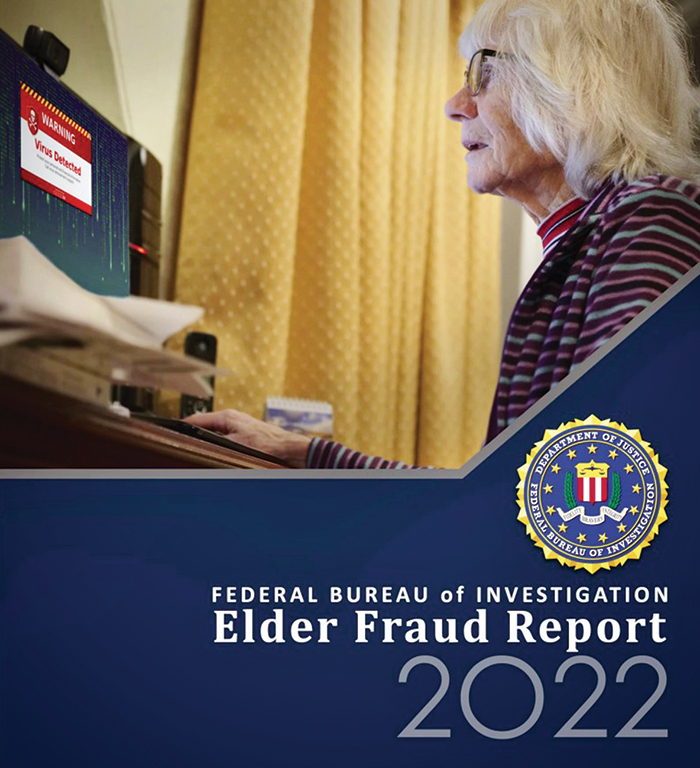Photo Courtesy of FBI
According to the FBI, each year, millions of elderly Americans fall victim to some type of financial fraud or confidence scheme.
By Michael V. Cusenza
The Federal Bureau of Investigation recently highlighted the work of the Elder Justice Task Force in California, and illustrated how collaboration between agencies is critical in targeting financial scams against older Americans that cost them billions in losses every year.
According to the FBI, each year, millions of elderly Americans fall victim to some type of financial fraud or confidence scheme, including romance, lottery, and sweepstakes scams—just to name a few.
Criminals will gain their targets’ trust and may communicate with them directly online, over the phone, and/or through the mail; or indirectly through the TV and radio. Once successful, scammers often keep a scheme going because of the prospect of significant financial gain.
Seniors are often targeted because they tend to be trusting and polite. They also usually have financial savings, own a home, and have good credit—all of which make them attractive to scammers.
Additionally, seniors may be less inclined to report fraud because they don’t know how, or they may be too ashamed at having been scammed. They might also be concerned that their relatives will lose confidence in their abilities to manage their own financial affairs. And when an elderly victim does report a crime, they may be unable to supply detailed information to investigators.
With the elderly population growing and seniors racking up more than $3 billion in losses annually, elder fraud has remained a growing problem.
Common elder fraud schemes include:
Romance scam: Criminals pose as interested romantic partners on social media or dating websites to capitalize on their elderly victims’ desire to find companions.
Tech support scam: Criminals pose as technology support representatives and offer to fix non-existent computer issues. The scammers gain remote access to victims’ devices and sensitive information.
Grandparent scam: A type of confidence scam where criminals pose as a relative—usually a child or grandchild—claiming to be in immediate financial need.
Government impersonation scam: Criminals pose as government employees and threaten to arrest or prosecute victims unless they agree to provide funds or other payments.
Sweepstakes/charity/lottery scam: Criminals claim to work for legitimate charitable organizations to gain victims’ trust. Or they claim their targets have won a foreign lottery or sweepstake, which they can collect for a “fee.”
Home repair scam: Criminals appear in person and charge homeowners in advance for home improvement services that they never provide.
TV/radio scam: Criminals target potential victims using illegitimate advertisements about legitimate services, such as reverse mortgages or credit repair.
Family/caregiver scam: Relatives or acquaintances of the elderly victims take advantage of them or otherwise get their money.
If you believe you or someone you know may have been a victim of elder fraud, contact your local FBI field office or submit a tip online. You can also file a complaint with the FBI’s Internet Crime Complaint Center at ic3.gov.
When reporting a scam—regardless of dollar amount—include as many of the following details as possible:
- Names of the scammer and/or company
- Dates of contact
- Methods of communication
- Phone numbers, email addresses, mailing addresses, and websites used by the perpetrator
- Methods of payment
- Where you sent funds, including wire transfers and prepaid cards (provide financial institution names, account names, and account numbers)
- Descriptions of your interactions with the scammer and the instructions you were given
Whenever possible, you should keep original documentation, emails, faxes, and logs of communications.

